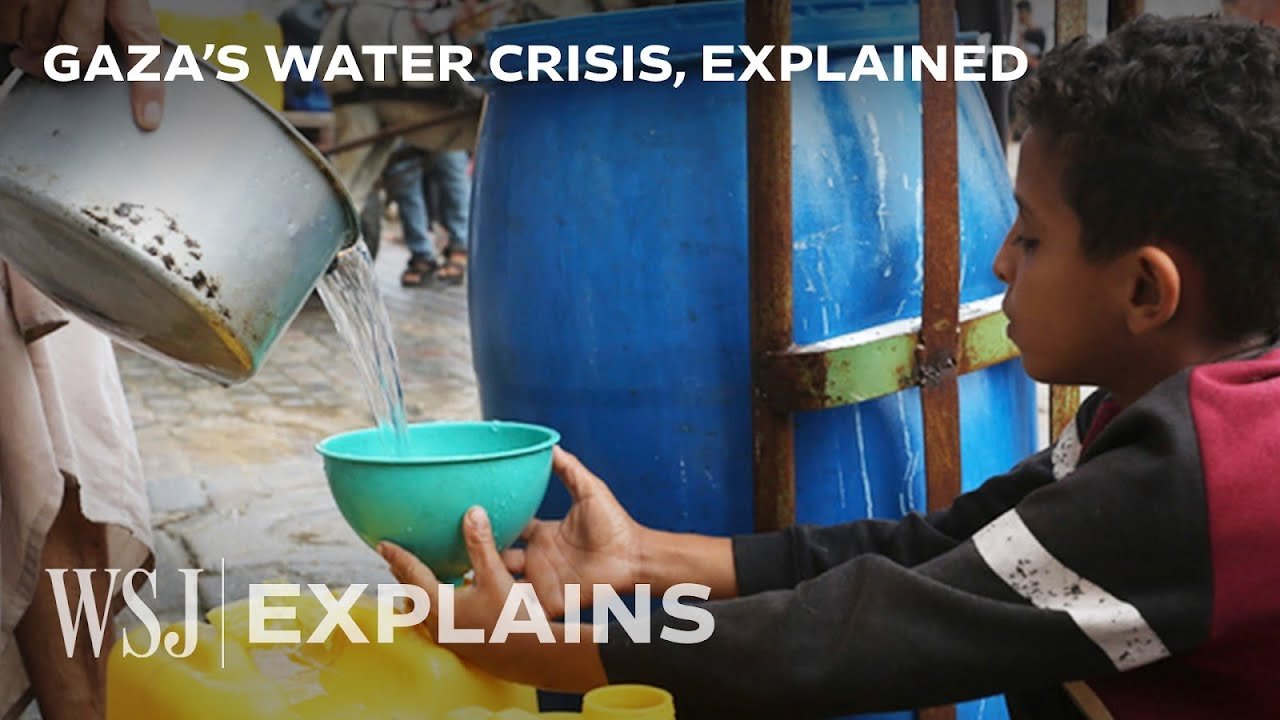The water crisis in Gaza has reached a critical level, with over 2 million residents facing severe shortages. The situation has been exacerbated by recent conflicts and blockades, limiting the supply of essentials including water, food, fuel, and medicine. The majority of Gaza’s freshwater is unfit for human consumption, forcing reliance on private water tankers and desalination plants. With fuel running out, desalination plants and wastewater treatment facilities have shut down, causing public health concerns with a surge in diarrhea cases, especially among young children.
- Over 2 million Gazans are surviving on three liters of water per day, far below the WHO’s minimum survival requirement of 15 liters.
- Gaza’s aquifer, the main source of freshwater, is contaminated with sewage and seawater, making 96% of the water undrinkable.
- Blockades imposed by Israel and Egypt since 2007 have restricted the entry of materials needed for water system repairs.
- Following recent hostilities, Israel cut off water pipelines to Gaza and only two of the three pipelines were reported to be functioning as of late October.
- Two out of three desalination plants have ceased operation due to fuel shortages, with the remaining plant operating at just 5% capacity.
- Wastewater treatment plants have stopped, leading to untreated sewage flooding streets and contributing to over 30,000 reported cases of diarrhea, over half in children under five.
- UNICEF warns that in conflict areas, children under five are significantly more likely to die from diseases related to diarrhea than from violence.
- The Israeli military claims Gaza has sufficient water supplies and accuses Hamas of limiting civilians’ access, while Hamas denies this.
- Humanitarian organizations argue that Gaza needs fuel to restore power and water supply systems.
- Since the start of the conflict on October 7, very limited fuel has been allowed into Gaza, impacting essential services and clean water access.
- In mid-November, 200,000 Gazans lost access to clean water after UN water distribution contractors halted operations due to fuel scarcity.
- Aid trucks have entered Gaza with some fresh water, but according to the UN, the supplies are insufficient to meet the needs.
The Wall Street Journal is an American business and economic-focused international daily newspaper based in New York City. The Journal is published six days a week by Dow Jones & Company, a division of News Corp.
AllSides Media Bias Rating: Center
https://www.allsides.com/news-source/wall-street-journal-media-bias
Official website: https://www.wsj.com
Original video here.
This summary has been generated by AI.
